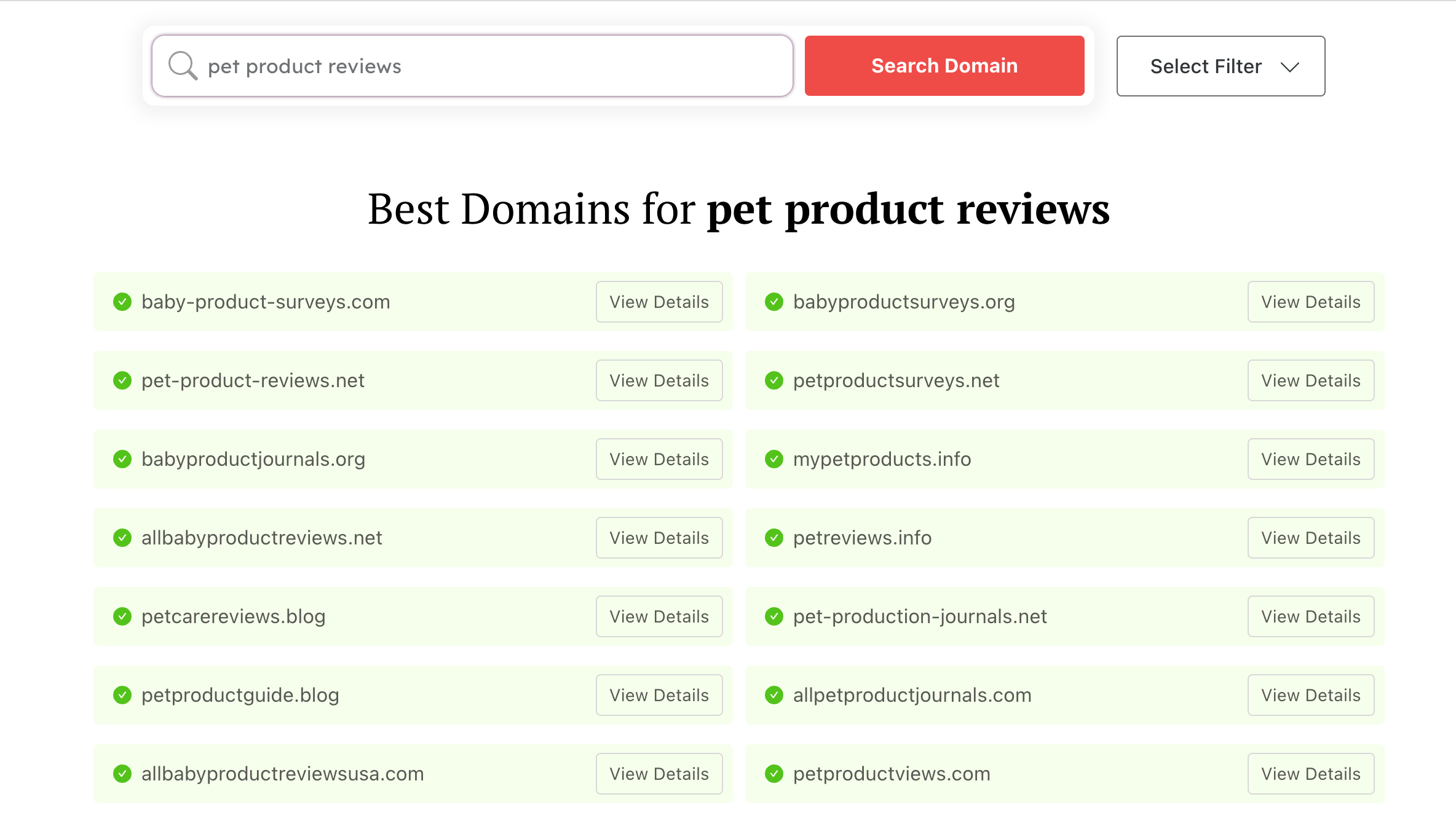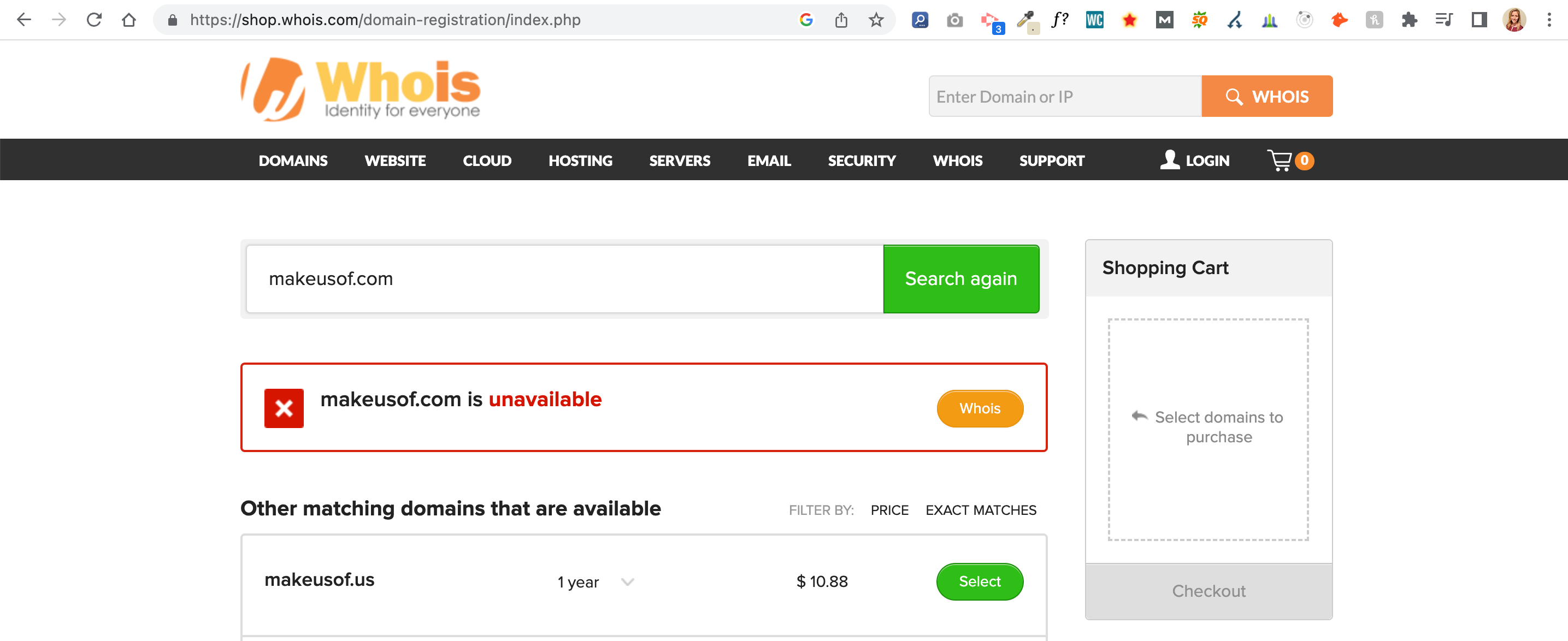Domain investing, also known as domain flipping, is the practice of buying and selling domain names for a profit. While it may sound simple, many factors go into making money from domain investing.
Read on as we explain domain investing, how to find valuable domain names, and how to buy and sell them for a profit. We'll also discuss some of the risks and potential pitfalls of domain investing, so you can make informed decisions about whether or not it's right for you.
What Is a Domain Name?
A domain name is the unique web address people use to access a website. For example, the domain name for Google is "google.com," while the domain name for Facebook is "facebook.com."
Domain names are typically made up of letters and numbers, and you can purchase them from domain registrars such as GoDaddy or Google Domains.
Domain names are important because they help people find and access websites easily. They also play a role in search engine optimization (SEO), which involves continuously improving a website's ranking on search engine results pages (SERPs). Generally, domain names that are short, memorable, and relevant to a website's content are more likely to rank well on SERPs.
We offer tips for choosing the best domain name, which also applies when evaluating potential domains to flip for a profit.
The Value of a Good Domain Name
Not all domain names are created equal. Some domain names are more valuable than others, and the value of a domain name can vary depending on several factors.
A domain name that is short and easy to remember is generally more valuable than a long and complicated one. Domain names that include popular keywords or phrases, such as "best-dog-toys.com," can be more valuable than generic ones. And finally, the age and history of a domain name can also affect its value.
In general, older domain names are more valuable than newer ones because they have had more time to establish a presence on the internet and build up backlinks and other SEO factors. Similarly, a domain name previously used for a successful website is generally more valuable than one that has never been used.
To determine the potential value of a domain name, you can use domain appraisal services, such as GoDaddy's Domain Appraisal Tool, which provides an estimated value for a domain name based on keyword popularity, website traffic, and other factors.
How to Find Good Domain Names
Now that you know what makes a domain name valuable, the next step is to find good domain names to invest in. There are several strategies you can use to find valuable domain names, including:
- Use keyword research tools: Popular keyword tools, such as Google Keyword Planner or SEMRush's Keyword Gap, help you identify popular terms and phrases people are searching for online. By incorporating these keywords into your domain name, you can improve its chances of ranking well on SERPs and attracting potential buyers.
- Check expiry dates: Many domain names are registered for a limited time, and when they expire, they become available for purchase. You can use specialized tools, such as Domain Hunter Gatherer, to find domain names about to expire and scoop them up before someone else does.
- Look for popular trends: Pay attention to current events and popular trends, and consider buying domain names that are related to these trends. For example, if a new movie is coming out, you might buy the domain name "best-movie-reviews.com" and sell it to a movie review website. By staying on top of popular trends, you can capitalize on the demand for domain names related to these trends and make a profit.
"If you track the trends, you can see when the trend is moving up," said GoDaddy Director of Education Mike Cyger in a recent HostingAdvice interview. "You can then invest thoughtfully and guardedly with a limited budget to ensure that you're investing for the long term."
Cyger also founded DNAcademy, which is now a GoDaddy brand and touted as the #1 domain name training platform. Consider investing in the domain name investment course or boot camp if you're serious about domain flipping as a revenue stream.
How to Buy and Sell Domain Names
Once you've found a valuable domain name, the next step is to buy it. You can do this through a domain registrar such as GoDaddy or Network Solutions. When you buy a domain name, you'll typically pay an annual fee to renew and keep it registered in your name.
Once you own a domain name, you can start looking for potential buyers. There are several ways to sell a domain name, including:
- Online marketplaces: There are many online marketplaces, such as Flippa and Sedo, where you can list your domain name for sale. These marketplaces provide a platform for buyers and sellers to connect and negotiate prices.
- Private sales: You can also try selling your domain name directly to potential buyers through personal connections or advertising it on your website or social media channels.
- Domain auctions: Some domain registrars, including GoDaddy, also offer domain auctions where you can bid on and buy domain names from other sellers.
When selling a domain name, it's important to set a realistic price considering its value and potential for profit. You should also be prepared to negotiate with buyers and be willing to make concessions to close the sale.
Expect to start small. Part-time domain flippers might bring in $200 to less than $1,000 per month, but the sky's the limit. A successful domain investment operation can easily bring in six figures annually. As with most business ventures, it depends on the time, research, and effort you put forth.
Risks and Potential Pitfalls
While domain investing can be profitable, it's not without its risks and potential pitfalls. For example, the market for domain names can be volatile, and the value of a domain name can fluctuate based on factors such as market demand and competition. This means you could buy a domain name for a high price and then sell it for a lower price, resulting in a loss.
Another potential risk of domain investing is the potential for scams and fraud. Because the domain name market is largely unregulated, unscrupulous individuals may trick you into buying a fake or worthless domain name. To protect yourself, you should only purchase domain names from reputable sellers and use secure payment methods, such as PayPal, to complete the transaction.
Finally, it's vital to protect your domain name legally. If you don't own the rights to a domain name, someone else could claim it and sue you for using it without permission. To avoid this, you should always confirm a domain name is available and not already registered before buying it.
The quickest way to determine if a domain name is registered is to perform a WHOIS lookup. A WHOIS lookup is a query that retrieves information about the owner and status of a domain name. We've curated a list of the best WHOIS lookup sites currently available. Enter the domain name you want to check into the search box on the WHOIS website, which will return information about the domain, including whether it is registered.
You Can Make Money Investing in Domains, but It's Not Easy
To succeed in domain investing, you need to understand what makes a domain name valuable, how to find good domain names, and how to buy and sell them for a profit. You also need to be aware of the potential risks and pitfalls of domain investing and take steps to protect yourself and your investment. With the proper knowledge and approach, you can make money from domain investing and turn it into a successful business.
This is not financial advice. If you're interested in any form of investment, you should approach a licensed financial adviser who can give you the best advice based on your needs and risk appetite.





